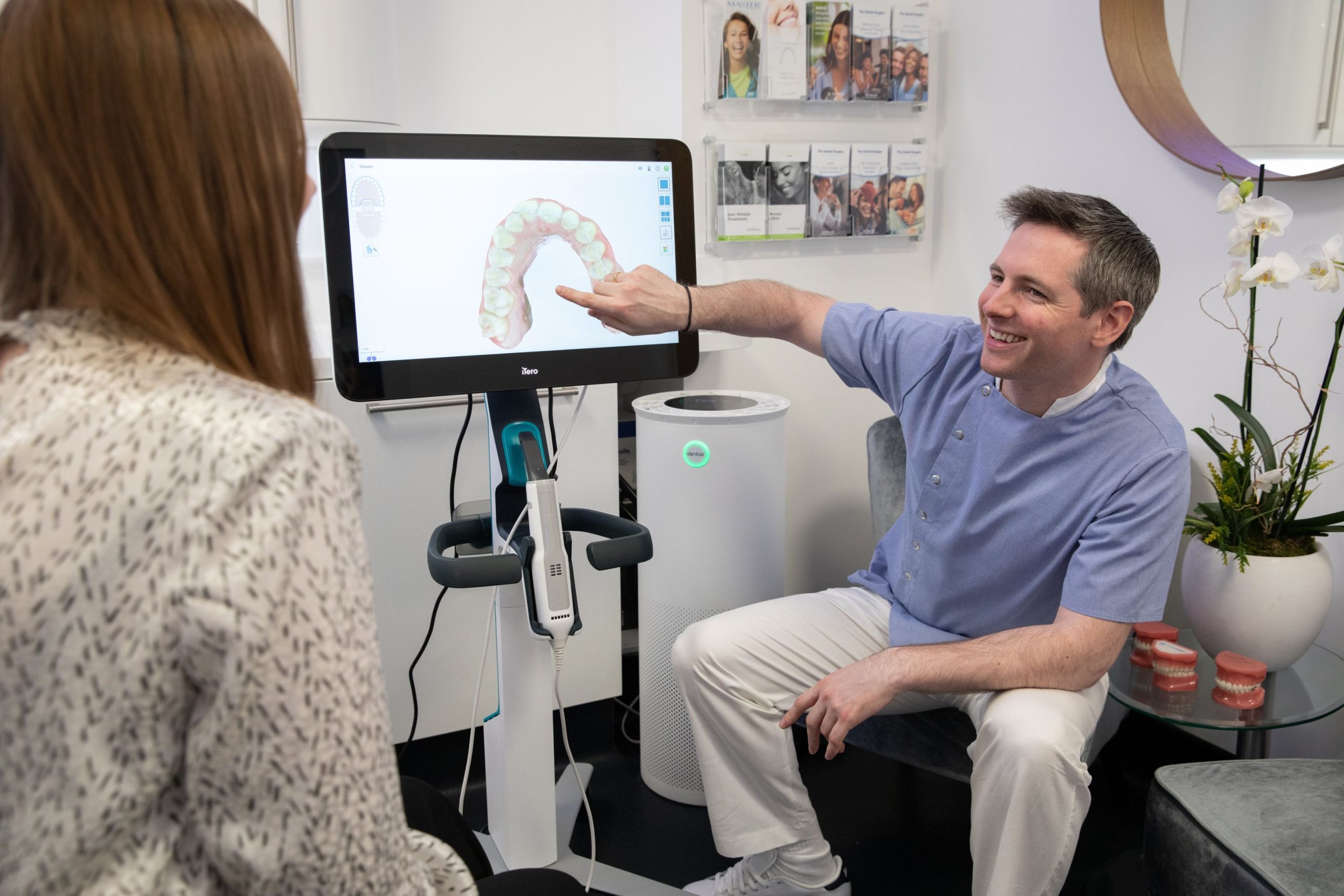-
Categorised as:
- General Dentistry
- Dental Hygiene
- Periodontics
How Stress Affects Oral Health
Ongoing stress can lead to a range of mental and physical issues, with studies finding links between stress and conditions as serious as obesity, heart disease, Alzheimer’s, diabetes and, of course, mental health issues such as depression.
Links Between Stress and Oral Health
A large number of scientific papers on the subject from between 1990 and 2006 were reviewed.
In 57% of the papers a clear link was found between stress and associated conditions – anxiety and depression – and periodontal disease.
Periodontal disease is an advanced stage of gum disease whereby the gum and bone is being eroded and the patient is at significant risk of teeth becoming loose.
There is strong evidence that stress can also affect someone’s oral health.
Gum Disease
While that might not sound as serious as some of the conditions above, gum disease can lead to teeth becoming loose, potential tooth loss and also a further increased risk of diabetes, heart problems and more.
Oral health issues are also readily apparent: bleeding gums, bad breath, jaw pain and other associated problems remain in the forefront of a person’s mind and so lead to further stress, which in turn exacerbates other problems!
Soft tissue in the mouth tends to be an indicator of general health. The presence and recurrence of ulcers can be a sign of stress impacting upon your oral health.
Grinding of teeth and consequent facial pain is a common impact from stressed facial muscles on dental health.
Tackling oral health issues might not eliminate stress, but it can help prevent the problem from escalating and also far more serious issues from occurring in the future.
One factor also worth highlighting is that an increase in the hormone cortisol when under stress may lower the body’s natural immune system and so make an individual more prone to gum disease – not to mention numerous other non-dental health issues.
Stress and Bad Dental Hygiene
People suffering from stress also have a higher tendency to do things that are suboptimal for their oral health.
A person with extreme stress might skip brushing their teeth, or skip flossing, or at best give their teeth a cursory brush.
A person who is stressed might grind their teeth, leading to wear on the enamel and teeth sensitivity. They might snack on unhealthy treats, especially those high in sugar.
Smoking
Someone who is stressed might smoke (more) and they might drink alcohol more regularly.
The stats are alarming – in 90% of cases where cancer of the mouth, lips or tongue is detected, the person is either a smoker or chews tobacco.
Smoking can make it up to six times more likely that a person will suffer from gum disease, smoking also greatly affects recovery from illness, for instance cancer is six times more likely to return if the patient is a smoker.
Any of these bad habits alone will have a detrimental effect on oral health, but combined these increase the impact.
However, the effects might not be immediately obvious. Smoking greatly increases the chances of gum disease, yet it also damages the blood vessels in the gums and so can actually make bleeding gums less likely.
Gum disease could be occurring yet without the usual first tell-tale sign to suggest gum disease might be present.
Teeth Grinding
Gum disease might be the most worrying oral health issue to potentially come from stress, but there are also short term problems such as cold sores, oral infections and aching jaws which need to be addressed.
Stress that leads to teeth grinding (also known as bruxism) can be a factor in limiting quality sleep at night, again a side effect that only serves to propel the “stress cycle”.
Fortunately, teeth grinding can be treated through actions taken at home coupled with help from a dental professional.
The symptoms of teeth grinding such as jaw pain, morning headaches and increased teeth sensitivity can be helped by eating softer foods and massaging the affected areas.
A longer-term solution can then be identified by examining the area and creating a bespoke mouth guard, this prevents the grinding while still being comfortable enough to not reduce the quality of sleep.
Stress and Oral Health – How to Tackle Problems
A lack of sleep leads to tiredness, the day starts badly, perhaps oral hygiene slides and the sufferer also indulges in coffee and cigarettes to kick themselves into action. Tackling oral health is one step towards halting the progress of further stress and also ensuring that, as the stress subsides, it has not caused long term damage.
Some degree of stress is quite natural at points through anyone’s life, but it should not lead to ongoing issues. Staying on top of oral health is also relatively straightforward – one less thing to stress about.
It starts with good oral hygiene. The things that should be done – brushing regularly, flossing, using interdental brushes – and those that should be avoided, such as excess sugar, smoking, drinking alcohol to excess, and teeth grinding. The next step, in fact this strides along the first, is to maintain regular check-ups with a dentist and professional treatments with a hygienist.
Most people suffering from bruxism (teeth grinding), do so at night while they sleep, completely unaware during the day that this is an issue to be addressed.
Regular checkups
Seeing a dentist for regular checkups allows them to keep watch over any excessive wear and assist with treatment to stop further damage, such as creating a mouth guard to be worn at night to protect teeth.
Seeing a dentist can either put your mind at rest that there are no oral health issues or help correct any that do exist. A dentist can also spot early signs of gum issues or other problems which, if left untreated, will become more problematic and heighten stress.
It is difficult, and potentially dangerous, for most people to self-diagnose the cause of their gum issues – dentists and hygienists are key in diagnosing the difference between simple gingivitis (which is easily reversible with good oral hygiene) and periodontitis (which requires more frequent hygiene, and potentially periodontal, treatment).
Healthy Habits
Stress is a horrible condition, especially when it is ongoing and seemingly without an obvious, solvable cause. It is debilitating. It is continually there in the background, it stops the body and brain functioning as they should and so can lead to a whole host of health issues.
Oral health is just one of those issues, however it is one where there is real danger of serious long term health problems occurring if it leads to untreated gum disease. But fortunately, in most cases, it is fairly easy to control. Maintain your dental hygiene, be aware that what you eat, drink and smoke has an impact and get to your dentist and hygienist as often as recommended.
If you live or work in London, please consider coming to The Dental Surgery for a check-up. You can book an appointment online at your convenience.
Do you have a specific question?
Get in touch with us today.



